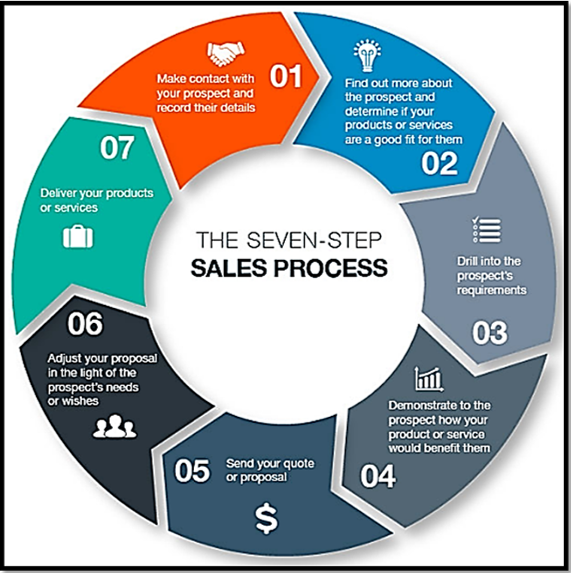A winning sales management process is crucial for driving consistent revenue growth and team success. According to the latest industry data, organizations with structured sales management processes see conversion rates 30-40% higher than those without. Let’s explore how to build a process that transforms your entire sales operation.
What is a Winning Sales Management Process?
A sales management process is a systematic framework that guides how your organization hires sales talent, structures operations, implements training, and optimizes selling strategies. This framework isn’t just paperwork-it’s the backbone that empowers your team to consistently hit targets and drive predictable revenue growth.
Effective sales management processes include clearly defined stages, performance metrics, coaching protocols, and resource allocation strategies. They create visibility into what’s working, what’s not, and how to quickly adapt to market changes.

Why Your Sales Management Process Matters
The difference between thriving and struggling sales teams often comes down to process quality. Companies with robust sales management systems experience:
- Higher Conversion Rates: Organizations implementing systematic lead management processes achieve 8-10% conversion rates compared to the 3.1% industry average. Fixing process issues can boost sales by up to 17%.
- Better Leads: A structured process helps teams identify high-value prospects faster. Teams with defined processes spend less time on low-probability opportunities and more time with prospects ready to buy.
- Faster Sales Cycles: When reps know exactly what actions to take at each pipeline stage, they move deals forward more efficiently. This clarity eliminates costly delays and reduces time-to-close.
- Accurate Forecasting: Defined sales processes lead to more accurate forecasts, providing reliable data for strategic decision-making
- Improved Team Performance: Sellers are 63% more likely to become top performers when they have effective management, regular coaching, and structured training. This drives both results and retention.
Developing a winning sales management process isn’t just beneficial–it’s essential for sustainable growth. Top sales organizations don’t leave performance to chance; they build systems that consistently deliver results.

7 Steps to Build a Winning Sales Management Process
Struggling to create a sales management system that consistently delivers results? Businesses with a structured sales process outperform their competitors by 30% in revenue growth. Let’s transform your approach with these seven actionable steps for 2025 success.
1. Architect Your Sales Foundation
Like building a house, start with a solid foundation. Begin by mapping your current sales landscape:
- Analyze existing sales data to identify what’s working and what’s not
- Define clear sales objectives that align with broader business goals
- Create detailed buyer personas based on your most profitable customers
Quick win: Document your ideal customer profile in one page that sales reps can reference daily. This simple tool reduces time wasted on poor-fit prospects by up to 37%.
2. Align Your Sales Pipeline to Your Customers
Design a pipeline that mirrors how customers actually buy rather than how you want to sell. Your pipeline should be like a well-designed highway system-clearly marked with no unexpected detours:
- Define 5 to 7 distinct stages with clear entry/exit criteria
- Establish specific actions reps must take at each stage
- Implement milestone-based qualification processes
Buyer confusion kills sales. When your sales pipeline aligns with the customer’s buying journey rather than your internal steps, conversion rates can improve by 15-20%.
3. Deploy Your Tech Stack Strategically
Your sales tools should work for you, not the other way around. Think of your tech stack as your sales team’s pit crew-it should make everything run faster and smoother:
- Implement a CRM that tracks interactions and gives real-time pipeline visibility
- Add automation tools to eliminate repetitive tasks (saving 5+ hours per rep weekly)
- Integrate analytics platforms to provide data-driven coaching insights
Pro tip: Avoid “shiny object syndrome.” Each new tool should solve a specific problem or it’s just digital clutter.
4. Build Your Dream Team (and Keep Them)
Your process is only as good as the people executing it. Like a championship sports team, you need both talent and chemistry:
- Develop structured interview processes focusing on coachability and resilience
- Create personalized onboarding programs that get reps selling 30% faster
- Implement mentorship programs pairing experienced closers with new hires
Recent data shows that companies with comprehensive onboarding programs experience 71% higher sales performance and 50% better retention rates.
5. Supercharge Performance With Elite Coaching
Great managers don’t just manage–they elevate. Your coaching should be like a GPS system, constantly recalculating the route to success:
- Schedule weekly 1:1 coaching sessions focused on skill development
- Use call recordings and AI analysis to provide specific feedback
- Create individualized improvement plans targeting specific selling behaviors
Mix in group coaching sessions too-they create healthy competition while fostering team learning (and sometimes the most valuable tips come from peers, not managers).
6. Commit to Data-Driven Decision Making
Modern sales platforms like SPOTIO transform what once required tedious spreadsheets into instant insights, putting data-driven decisions within reach of every sales team. Now you can:
- Track conversion rates at each pipeline stage
- Measure average sales cycle length and identify bottlenecks
- Monitor individual performance metrics against team benchmarks
Think of your sales metrics like a fitness tracker: they tell you exactly where you’re strong and where you need improvement. Companies making decisions based on sales data report 29% higher quota attainment.
7. Build Continuous Improvement Systems
The best sales organizations are never satisfied. Create a framework that constantly evolves:
- Schedule quarterly process reviews to eliminate friction points
- Run A/B tests on different approaches to prospect engagement
- Create feedback loops between sales, marketing, and product teams
Today’s winning strategy is tomorrow’s outdated approach. The sales landscape in 2025 changes faster than a teenager’s social media preferences: what worked last quarter might not work today.
By following these seven steps, you’ll build more than just a process–you’ll create a sales engine that consistently delivers predictable revenue growth.
How to Measure the Effectiveness of Your Sales Process
Struggling to determine if your sales process delivers optimal results? Measuring sales effectiveness isn’t just about tracking revenue-it requires a strategic approach across multiple dimensions of your sales operation. Here’s how top-performing field sales teams evaluate process effectiveness in 2025:
Map Your Current Process First
Before measuring anything, document your existing sales process from prospect to close. This creates your baseline for improvement.
- Identify each stage in your sales funnel
- Document actions, tools, and personnel involved at each step
- Understand handoff points between team members
Core Metrics That Matter
Focus on these fundamental KPIs to evaluate process effectiveness:
- Win Rate: Percentage of deals won divided by total closed deals-directly reflects sales team effectiveness and product market fit
- Sales Cycle Length: Average time to close deals-shorter cycles typically indicate a more efficient process
- Average Deal Size: Total revenue divided by number of deals closed-helps predict revenue and set realistic targets
- Total Sales: Overall revenue generated-direct measure of sales performance
- Sales Growth Rate: Rate of change in sales revenue over time-key indicator of business trajectory
Multi-Level Measurement Approach
Effective measurement requires examining your process at different levels:
- Organizational Level: Overall revenue targets and market penetration
- Team Level: Department-wide conversion rates and productivity
- Individual Rep Level: Performance against role-specific benchmarks
- Deal Level: Success rates for specific products or customer segments
The most revealing formula: Sales effectiveness = (Actual results / Expected results) × 100%
Four Principles for Accurate Assessment
- Contextual Analysis: Compare your metrics against relevant industry benchmarks-what “good” looks like varies by industry and product complexity
- Trend Tracking: Monitor quarter-over-quarter improvements rather than isolated data points-direction matters more than absolute numbers
- Role-Specific Standards: Establish different metrics for different roles (SDRs vs. Account Managers)
- Business Outcome Connection: Ensure your metrics actually correlate with business results-activity only matters if it drives outcomes
By implementing this measurement framework, you’ll gain clarity on what’s working, what’s not, and exactly where to optimize your sales process for maximum results. Measuring effectiveness isn’t about finding problems–it’s about creating a pathway to continuous improvement.
Revolutionlize Your Sales Management Process With SPOTIO
SPOTIO gives sales leaders everything they need to implement and monitor an effective sales management process after they’ve hired the right team members. For example, with SPOTIO you can:
- Understand Your Ideal Customers: What industries do your products sell best in? Which email templates generate the most responses? What territories produce the best customers? SPOTIO logs all crucial data points and makes them easily accessible to sales managers.
- View Sales Rep Activity: It’s difficult to know which strategies and tactics in your sales process are effective if you can’t monitor sales rep activity. Use SPOTIO to learn what your field reps are doing so that you can help them plan more productive routes and otherwise coach them to greater success.
- Analyze Important Metrics: SPOTIO will also give you the data you need to make better decisions regarding your sales team. Are they contacting quality leads? Are they overusing a specific form of communication? Do their conversion rates meet industry standards? SPOTIO can generate reports to answer these questions and save the information inside our CRM tool built specifically for field sales.
SPOTIO is the industry-leading engagement tool for field sales teams. Request a personalized demo to see how it can help you build a winning sales management process.




